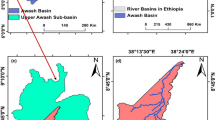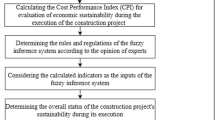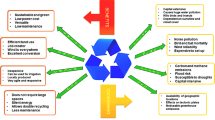Abstract
Korean thermal power has had a prominent position in energy policies for the past decades. However, pollutants from the combustion of fossil fuels used in converting thermal energy into electrical energy have undesirable effect on the environment. This paper applies fuzzy set theory (FST) to identifying the significance of various environmental impacts using a specific case study of the electric power utilities in Korea. To this end, we consider nine environmental impacts: mortality, morbidity, forest, agricultural production, materials, visibility, thermal discharge water, landscape, and global warming. A survey of randomly sampled 1,000 households was administrated to obtain value judgments from FST about the environmental impacts of a thermal power plant. The overall results show that global warming is the most important attribute in environmental effect-related decision-making processes and followed by morbidity and mortality in order. The implications of the results for electric power utilities are also discussed. We found that the work and results can provide valuable insights for major decision making in energy and environmental planning of the electric power utilities.
Similar content being viewed by others
References
Aekplakorn W., Loomis D., Vadakan N.V., Shy C., Wongtim S., Vitayanon P.: Acute effect of sulphur dioxide from a power plant on pulmonary function of children, Thailand. Int. J. Epidemiol. 32, 854–861 (2003)
Chang P.L., Chen Y.C.: A fuzzy multi-criteria decision making method for technology transfer strategy selection in biotechnology. Fuzzy Sets Syst. 63, 131–139 (1994)
Energy Information Administration: Electricity Generation and Environmental Externalities: Case Studies. DOE/EIA-0598, Washington, DC (1995)
Ghyym S.H.: A semi-linguistic fuzzy approach to multi-actor decision-making: application to aggregation of experts’ judgments. Ann. Nucl. Energy 26, 1097–1112 (1999)
Glasson, J., Therivel, R., Chadwick, A.: Introduction to Environmental Impact Assessment, 3rd edn. Routledge,Oxon (2005)
Hohmeyer, O., Ottinger, R.L.: External Environmental Costs of Electric Power. Springer, Berlin (1990)
Hohmeyer O., Ottinger R.L.: Social Costs of Energy. Springer, Berlin (1992)
Hohmeyer, O., Ottinger, R.L.: Social Costs and Sustainability. Springer, Berlin (1995)
Janssen R.: On the use of multi-criteria analysis in environmental impact assessment in the Netherlands. J. Multi-Criteria Decis. Anal. 10, 101–109 (2001)
Kim T.-Y., Kwak S.-J., Yoo S.-H.: Applying multi-attribute utility theory to decision making in environmental planning: a case study of the electric utility in Korea. J. Environ. Plan. Manag. 41, 597–609 (1998)
Lee, N.: Environmental impact assessment: a training guide. Occasional Paper 18. Department of Town and Country Planning, University of Manchester (1987)
Medina S., Moreno J.: Risk evaluation in Colombian electricity market using fuzzy logic. Energy Econ. 29, 999–1009 (2007)
Rafaj P., Kypreos S.: Internalisation of external cost in the power generation sector: Analysis with Global Multi-regional MARKAL model. Energy Policy 35, 828–843 (2007)
Rowe, R.D., Lang, C.M., Latimer, D.A., Rae, D.A., Bernow, S.M., White, D.E.: New York State Environmental Externalities Cost Study. Oceana Publications, New York (1995)
Thanh B.D., Lefevre T.: Assessing health impacts of air pollution from electricity generation: the case of Thailand. Environ. Impact Assess. Rev. 20, 137–158 (2000)
Tran L.T., Knight C.G., V. O’Neill R., Smith E.R., Riitters K.H., Wickham J.: Environmental assessment. Environ. Manag. 29, 845–859 (2002)
Yoo S.-H., Kwak S.-J., Lee J.-S.: Using a choice experiment to measure the environmental costs of air pollution impacts in Seoul. J. Environ. Manag. 86, 308–318 (2008)
Zadeh L.A.: Fuzzy sets. Inf. Control 8, 338–353 (1965)
Author information
Authors and Affiliations
Corresponding author
Rights and permissions
About this article
Cite this article
Ju, HC., Yoo, SH. Using the fuzzy set theory to developing an environmental impact assessment index for a thermal power plant. Qual Quant 48, 673–680 (2014). https://doi.org/10.1007/s11135-012-9794-0
Published:
Issue Date:
DOI: https://doi.org/10.1007/s11135-012-9794-0




